- Home
- Tim LaHaye
The Indwelling: The Beast Takes Possession Page 21
The Indwelling: The Beast Takes Possession Read online
Page 21
“Yeah.”
“He’s in the terminal. Can you make it?”
“No.”
“We’ll get a gurney out here.”
Buck watched as T’s body was lifted out in a bag. “Take care of the old guy back there,” Buck managed, pointing the other way.
“We’ve got the old man,” someone said. “Bloody nose and a jittery heart, but he’ll make it.”
And Buck was out again.
The skies began to darken in Chicago at around seven, but Rayford decided to wait until eight to venture out. He wanted the skies black and no one even looking their direction. The city had been abandoned, condemned, and cordoned off for months, and it wouldn’t have surprised him to know that not even a leftover drunk walked those streets. Radiation or not, decaying bodies littered many streets. It might be a safer place to hide out, but it was not going to be a fun place to live.
He pulled slowly from under the L platform with his lights off, hoping to kick up as little dust as possible. There would be no shooting straight into the Loop on the Dan Ryan. Nothing was as it once was.
Between separate bombing raids and the great earthquake, some reconstruction had been attempted, but these were meant to be shortcuts, two-lane roads that cut straight through the city. But only a few were even half finished, so the most direct route anywhere was as straight a line as you could point—over, under, around, and through the natural and man-made obstacles in the best four-wheel-drive vehicle you could find.
Rayford guessed he had between fifteen and twenty miles to drive, his lights off most of the way, traveling at around ten miles an hour. “I hope this is all David says it is,” he said.
“Me too,” Chloe said. “For my sake. Of course, I watched his little cybertour of the place. If it’s half what it looks like, it’s going to be as close to ideal as we can find.”
Leah was asleep.
David showed up at the statue construction site a few minutes after five in the morning, Carpathia Time. Guy started in with something sarcastic about how now they could finish their work. David held up both hands. “Sorry if I held you up. Minister Blod, a word, please?”
Guy seemed so shocked that David had addressed him with proper protocol in front of his staff that he dropped what he was doing and joined him several feet away. David thrust out his hand, and Guy, clearly suspicious, shook it tentatively. “I want to apologize for speaking inappropriately to you, sir. I trust you’ll find me helpful and not a hindrance to your work from here on.”
“What?”
“I said I want to apologize—”
“I heard you, Hayseed. I’m waiting for the punch line.”
“That’s all I had to say, sir.”
“I’m waiting for the other shoe to drop!” Guy said in a singsong tone.
“That’s all, sir. Will you forgive me?”
“I’m sorry?”
“I said, that’s all, sir—”
“I heard you; I’m trying to digest this. The supreme commander put you up to this, didn’t he? Well, I didn’t squeal on you. C’mon, who made you do this?”
David would have loved to have said “God” and blown Guy’s mind. “No outside influence, Minister Blod. No ulterior motives. Just want to start over on the right foot.”
“Well, count me in, mister!”
“Is that an acceptance of my apology?”
“It’s whatever you want it to be, soldier!”
“Thanks. No sense holding up the work any longer.”
“I should say not. We’re ready to roll in five.”
CHAPTER 15
Buck struggled to open his eyes. He had never felt so beat-up.
The dawn sun peeked through the blinds in a small infirmary, he wasn’t sure where. He had awakened to the quiet praying of three men who sat holding hands. One he recognized as Lukas Miklos. The others were a tall, dark-haired man about his own age and an older, smaller, Middle Easterner.
“How are you feeling, my friend?” Lukas said, approaching.
“I’ve been better, Laslos, but you’re a sight. Where are we, and how is Chaim?”
Lukas stepped closer and whispered. “Chaim will be all right, but we had to come up with an alias for him. His nose was severely damaged and his jaw broken. So he has not spoken, and medical personnel are not suspicious, only curious. He is being operated on right now. Our document forger pulled off the impossible, so . . .”
“And our pilot is gone, right? I wasn’t hallucinating.”
“That is correct. Praise God he was a believer. His papers identified him as Tyrola Mark Delanty. Was this an alias, or—?”
“Didn’t need an alias. He ran a small airport near us and was able to evade suspicious eyes.”
Laslos nodded. “The GC will not allow bodies to be transported internationally. Let our church handle the burial.”
Buck rolled his shoulders and rotated his head. Pain shot through his neck. “What’s your guy going to do about Chaim’s picture?”
Lukas looked over his shoulder. “Look what we planted after surgery.” He showed Buck an ID with the photograph nearly scraped off, a bit of white hair peeking through the top. “Doesn’t that look like it went through the crash? We tried to persuade officials to postpone surgery until the swelling reduced, but they’re short staffed here, like everywhere. Meanwhile, he’s Tobias Rogoff, a retired librarian from Gaza on his way to North America on a charter flight, the same one you’re on.”
“Does he know this?”
“We told him a few hours ago. Our story is that the charter insurance company has contracted with Albie Air to guarantee the completion of the trip as soon as you two are airworthy.”
“I’m airworthy now,” Buck said, looking over Laslos’s shoulder toward the little Middle Easterner. “You must be Albie.”
“I am, sir,” he said with a thick accent and a slight bow. “Your father-in-law and your friend Mr. McCullum and I go way back. Also Abdullah Smith.”
“How well I know. I did not expect to see your mark. Is my father-in-law aware?”
Albie shook his head. “This was very recent, within the week. I tried to contact Rayford, but I found him impossible to connect with. Of course, now I know why.”
“And how did you come to faith, sir?”
“Nothing dramatic, I’m afraid. I have always been religious, but Rayford and Mac and Abdullah all urged me to at least consider the writings of Dr. Ben-Judah. Finally I did. You know what reached me? His assessment of the difference between religion and Christianity.”
“I know it well,” Buck said, “if you’re referring to his contention that religion is man’s attempt to reach God, while Jesus is God’s attempt to reach man.”
“The very argument,” Albie said. “I spent a couple of days surfing the archives of Dr. Ben-Judah’s Web site, saw all his explanations of the prophesied plagues and judgments, then studied the prophecies about the coming Christ. How anyone with a functioning mind could read that and not—”
“Forgive me, Albie,” Laslos said, “but we must keep moving. We should tell you, Buck, that Dr. Rosenzweig’s eyes danced at the prospect of a new identity. We don’t know how long it will be before he can speak, but it’s clear he can’t wait to playact as someone else.”
Buck slid off the side of the bed. “Are we near the airport?”
Laslos shook his head. “We’re north of Kozani. Albie has flown the new craft to Ptolemaïs, and when you and, ah, Tobias are healthy, you’ll leave from there. Meanwhile, as soon as we can get you out of here, you’ll stay with us at the same safe house where we harbored Rayford.”
“We have not met,” Buck said, reaching past Laslos’s hand to shake hands with the tall, willowy one.
“I’m sorry,” Laslos said. “Pastor Demeter.”
The pastor said, “Mr. Williams, I answered your phone awhile ago and talked to your wife. She and your father-in-law are checking out a new safe house, and she was very relieved to hear that you and Chai
m are alive. Naturally, they are distraught over Mr. Delanty, particularly Rayford. Mrs. Williams wants to talk with you as soon as you are able.”
“I want to get home soon,” Buck said. “Albie, I’ll bet you weren’t planning on flying that far, were you?”
“I have nothing to return to Al Basrah for, Mr. Williams. Could you use another craft and another pilot?”
“Oh, I think the Trib Force might find room for the best black-market contact in the world.”
Demetrius handed Buck his phone. As Buck dialed, Laslos explained that so far they had not seemed to arouse suspicion on the parts of the local GC. “They believe Demetrius works for me and that you are an American come to study the business.”
Chloe didn’t like the plan. “Get out of there, Buck,” she told him. “We’ve found the perfect safe house. Even my curmudgeon father hopes so. Chaim is smart, but this clandestine stuff is not his game. Let us get you two healthy here.”
“You may be right, Chlo’,” he said. “What time is it there? I’ve got to call my dad.”
She paused. “Buck, it’s after eight in the evening and earlier out west, but that was one of the reasons I wanted to talk with you.”
He read it in her voice.
“Dad?”
“Yes.”
“And—”
“Your brother too, Buck. I’m so sorry.”
“How?”
“GC.”
“Looking for us?”
“That’s what we understand.”
“But they didn’t know where we are! That’s why I never told them!”
“I know, sweetheart. There may be some good news too.”
“What?”
“Our source tells us that the first attempt to get information out of them had to be postponed. They were at church.”
“Chloe, don’t.”
“It’s true, Buck. Leah found a believer at Buffer who has access to these schemes, and she says that’s from a reliable source.”
“Why wouldn’t Dad have told me?”
“Maybe the timing wasn’t right.”
“I wish I could know for sure.”
“Leah is trying to reach the church so they know what happened and can be on guard. She’ll ask for the truth about your dad and brother.”
Rayford had had to stop driving when news came of T’s death. He walked a couple of blocks in the darkness, and when Chloe asked if she could walk with him, he thanked her but added, “I need a few minutes, hon.”
Chicago was, naturally, a mess. Buildings in piles, rotting carcasses, vehicles crashed or burned. It seemed an appropriate ambience for Rayford’s sojourn.
The hardest thing about living during this period, he decided, was the roller coaster of emotions. He would never get used to the shock of loss and the necessity to telescope mourning into minute slivers so it could be dealt with and yet one could get on with the business at hand.
In the past, with each death of someone close to him, Rayford had rehearsed the ever-growing list in his mind. He didn’t do that anymore. He wondered if a person had a limit, some finite reservoir of grief that would eventually peter out and leave him with no tears, no regret, no melancholy. He stopped at what was once a corner and leaned over, hands on his knees. His grief supply was still stocked, and the pain of the loss gushed from him.
Hard as it was, Rayford had to condense the bereavement caused by yet another aching amputation into a few brief hours. He was not allowed to dwell on it, to jot his memories, to console a widow, to break the news to a congregation. There would be no wake, no funeral, not even a memorial service, at the rate they were going. T’s church was likely to have one, of course, but there was no way Rayford dared attend. Who knew who might be watching, lying in wait?
Not enough of his comrades in the Tribulation Force really knew T. There would be little reminiscing. He was gone. They would see him in heaven. Now what was next on the crisis docket? It was unfair, unnatural. How was a person supposed to function this way and stay sane?
Rayford was grateful for his own return to what Dr. Ben-Judah liked to call the “first love of Christ,” that wonderful season when the plan of salvation and the truth of grace are fresh and new. He was thankful for the counsel of Demetrius Demeter and the refreshing rest and new sense of resolve he enjoyed.
And now this. The thrill ride. He’d had enough ups for twenty-four hours, apparently. He had been due for some downs.
As usual when in a stretch like this, Rayford tried cataloging what he still had to be thankful for. Without fail, every blessing in his life had a name attached: Chloe, Kenny, Buck, Tsion, Leah, her new friend he hadn’t yet met, the two Zekes, Chaim, David and Annie, Mac, Abdullah, Laslos and his wife, Demetrius, Albie. Rayford wondered why Albie had been so eager to help in Greece and what it was he was so eager to tell him, but only in person.
Rayford had to fight the knowledge that while his list might expand, it also had to suffer attrition. He had already lost so many, including two wives. He would not allow himself to think about losing more relatives.
When he returned to the Rover, Leah reported that she had reached the leader of the house church Buck’s father and brother had attended. “I told him I’d love it if he could talk directly to Buck and he said he’d be happy to, but I didn’t feel right about giving out Buck’s number.”
“That was wise,” Rayford said. “Let Buck decide that. His phone is secure, but this pastor’s is likely bugged if they just had a GC cleansing. Try Buck and give him the pastor’s number. Let him work out the contact.”
A few minutes later Rayford parked near Strong’s and they cased the place, only to find it secure. The three of them sat on the sidewalk with their backs to the cold brick, and Rayford pulled out his phone.
Something about the New Babylon predawn David never liked. Maybe Israel was lusher. Both were desert areas, but the hour before daybreak in Israel had always invigorated him, made him look forward to the promise of the day. The dry, windless heat of New Babylon mornings, beautiful as the sunrises could be, David found suffocating.
Watching Guy Blod put the finishing touches on the huge image of Nicolae Carpathia did little to cheer David. Not a hundred feet away, hundreds of thousands of grieving pilgrims from all over the world moved in slow silence, waiting hours for their few seconds before the sarcophagus. It was sad enough that these blind, lost, misled minions clearly worried about their future due to the loss of their beloved leader. But here behind great curtains, Guy and his assistants rhapsodized over the finished product.
“Care to look close?” Guy asked David as he glided down on a motorized scaffold.
Not really, David wanted to say, but how would he explain passing on such a so-called privilege? He shrugged, which Guy interpreted as affirmative, and the sculptor sang out instructions.
“There’s only room for one on the scaffold, and you have to run the controls yourself. Be careful! The first time I did it I nearly knocked over one of my own creations!”
Guy showed David the controls, which consisted primarily of a joystick and speed selector. He was tempted to point the thing at the statue’s head, shoot up, and knock it over. As David tentatively and jerkily practiced maneuvering the scaffold before rising, Guy hollered his cautions. “Careful of the smoke! The fire is lit under the knees, and the face has the only exhaust.”
“Why didn’t you wait until it was in place to start the fire?”
“We don’t want to distract the crowds. This sort of art is a duet between sculptor and viewer, and my goal is that they participate in the illusion that the statue is alive.”
“Twenty-four feet high and made of metal?”
“Trust me, this works. People will love it. But it would spoil everything if they saw us dumping in the stuff for the fire.”
“What are you using for fuel?” David asked.
“A form of shale,” Guy said. “For kindling, onionskin paper.”
“Where’d that come from?”
>
“Every tribe and nation!” Guy said, and his people laughed. “Seriously, we have an unlimited supply of holy books from all over the world, the last contribution of the late Pontifex Maximus. He shipped from Rome all the holy texts that had been confiscated and donated from the various religions and sects when the one-world faith was established.”
David was repulsed, now certain he didn’t want the closer look, but he was stuck. “Note the handiwork on the way up!” Guy said. What was there to see but polished black iron? “You can touch, but be careful! It’s delicately balanced!”
Nearly two and a half stories up, David could hardly hear Guy anymore. Smoke wafted out the eyes, nostrils, and mouth of the quadruple-size image of Carpathia. It was uncanny. Though from that close the illusion was lost that the eyes were real, the features, having been made from the actual cast of the body, were perfect replicas.
David was high enough to see past the statue to the horizon, where the sun’s pinks were just beginning to wash the sky. Suddenly he flinched and backpedaled, hitting the safety bar just above his waist. The whole scaffold shuddered, and he feared it might topple.
“Hey!” one of Guy’s assistants hollered.
“What’s going on up there?” Guy yelled. “You all right?”
David waved. He didn’t want to admit what he’d heard, what had made him jump. He steadied himself and listened. A low rumble, echoing as if from the belly of the image. Muffled and sonorous, it was clearly Carpathia’s timbre. What was it saying, and how had they gotten it to do that? A chip? A disc player? A tape?
He felt the vibration again, heard the hum, cocked his head to listen. “I shall shed the blood of saints and prophets.”
David whipped the control so the scaffold lurched down about five feet and stopped, swaying again. “How did you do that?” he called down.
“Do what?”
“Get a recording in there!”
Silence.
“Well, how did you? Where’s the hardware, and what does the phrase mean?”
Guy was still staring up at him, obviously holding out.
“Guy!”

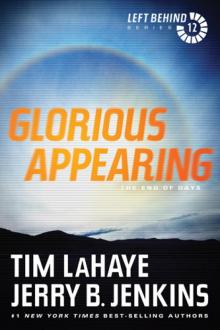 Glorious Appearing: The End of Days
Glorious Appearing: The End of Days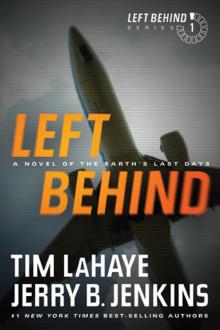 Left Behind: A Novel of the Earth's Last Days
Left Behind: A Novel of the Earth's Last Days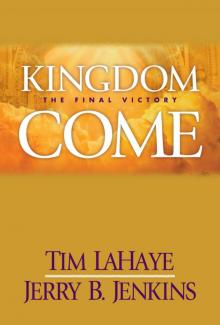 Kingdom Come: The Final Victory
Kingdom Come: The Final Victory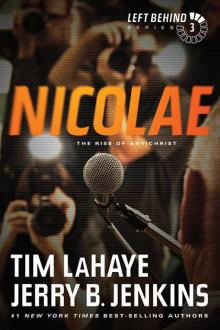 Nicolae: The Rise of Antichrist
Nicolae: The Rise of Antichrist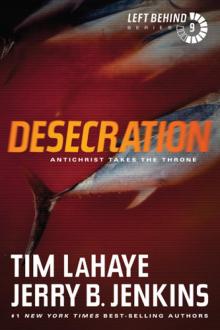 Desecration: Antichrist Takes the Throne
Desecration: Antichrist Takes the Throne Mark's Story: The Gospel According to Peter
Mark's Story: The Gospel According to Peter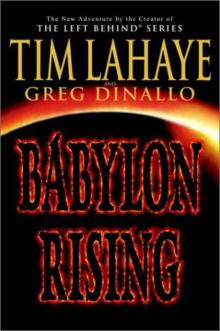 Babylon Rising
Babylon Rising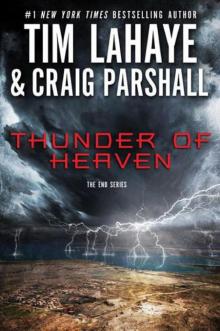 Thunder of Heaven: A Joshua Jordan Novel
Thunder of Heaven: A Joshua Jordan Novel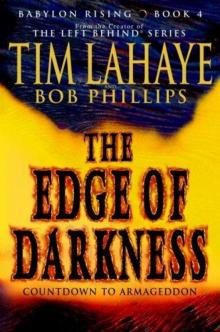 The Edge of Darkness
The Edge of Darkness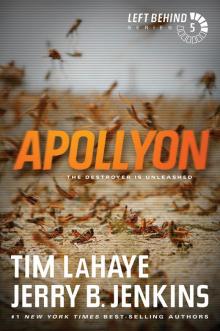 Apollyon: The Destroyer Is Unleashed
Apollyon: The Destroyer Is Unleashed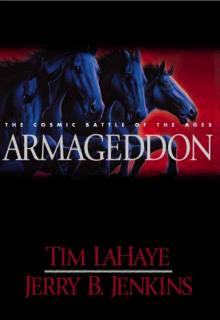 Armageddon: The Cosmic Battle of the Ages
Armageddon: The Cosmic Battle of the Ages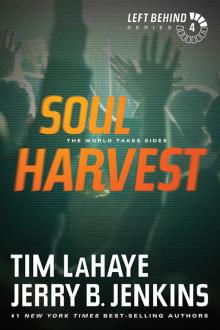 Soul Harvest: The World Takes Sides
Soul Harvest: The World Takes Sides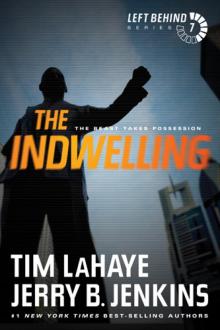 The Indwelling: The Beast Takes Possession
The Indwelling: The Beast Takes Possession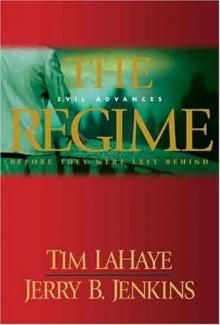 The Regime: Evil Advances
The Regime: Evil Advances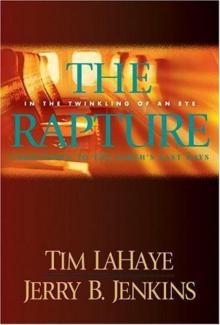 The Rapture: In the Twinkling of an Eye / Countdown to the Earth's Last Days
The Rapture: In the Twinkling of an Eye / Countdown to the Earth's Last Days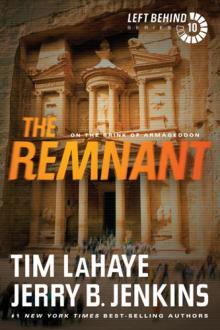 The Remnant: On the Brink of Armageddon
The Remnant: On the Brink of Armageddon John's Story: The Last Eyewitness
John's Story: The Last Eyewitness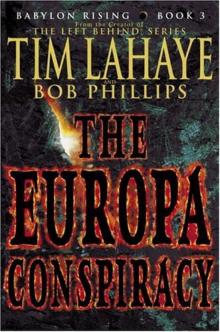 The Europa Conspiracy
The Europa Conspiracy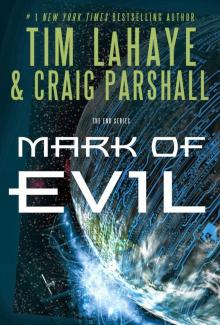 Mark of Evil
Mark of Evil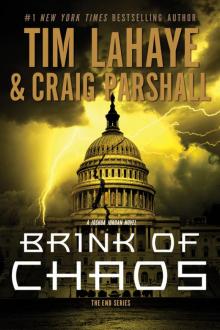 Brink of Chaos
Brink of Chaos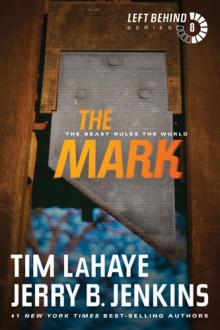 The Mark: The Beast Rules the World
The Mark: The Beast Rules the World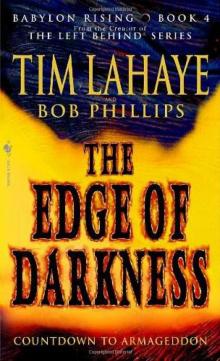 04 The Edge of Darkness
04 The Edge of Darkness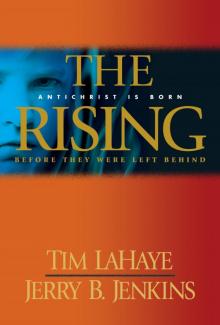 The Rising: Antichrist is Born / Before They Were Left Behind
The Rising: Antichrist is Born / Before They Were Left Behind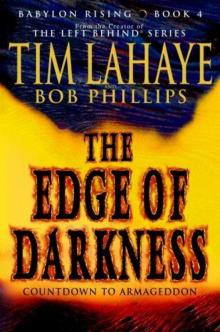 Babylon Rising: The Edge of Darkness
Babylon Rising: The Edge of Darkness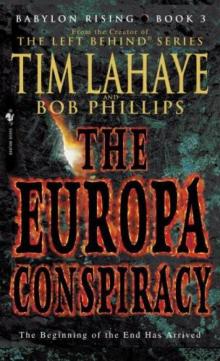 03 The Europa Conspiracy
03 The Europa Conspiracy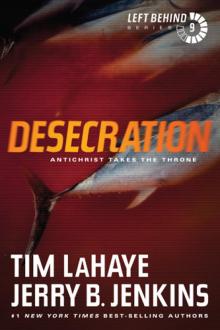 Desecration
Desecration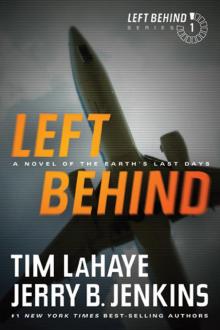 Left Behind
Left Behind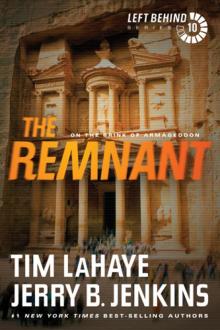 The Remnant
The Remnant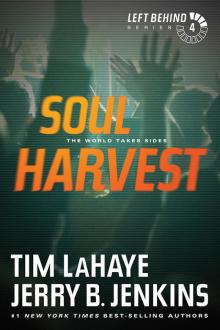 Soul Harvest
Soul Harvest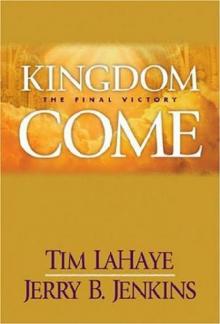 Left Behind Book 13: Kingdom Come The Final Victory
Left Behind Book 13: Kingdom Come The Final Victory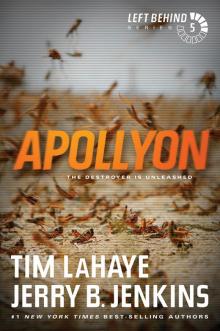 Apollyon
Apollyon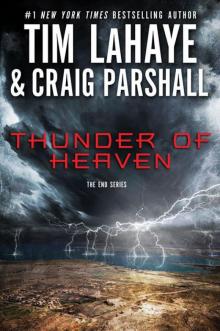 02 Thunder of Heaven: A Joshua Jordan Novel
02 Thunder of Heaven: A Joshua Jordan Novel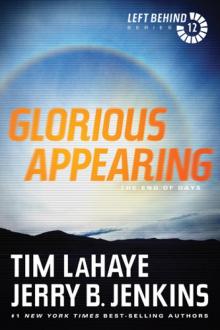 Glorious Appearing
Glorious Appearing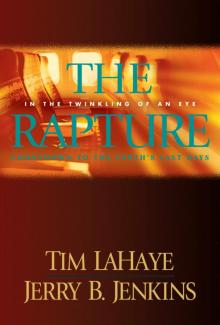 The Rapture: Evil Advances / Before They Were Left Behind
The Rapture: Evil Advances / Before They Were Left Behind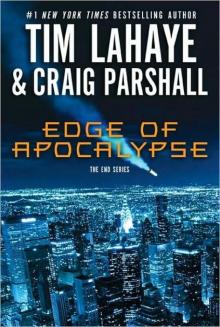 Edge of Apocalypse
Edge of Apocalypse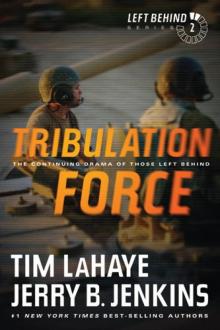 Tribulation Force
Tribulation Force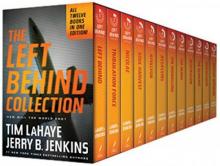 The Left Behind Collection: All 12 Books
The Left Behind Collection: All 12 Books Black Friday
Black Friday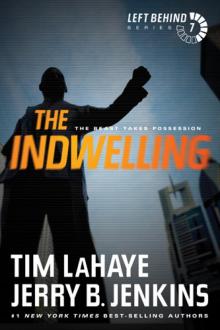 The Indwelling
The Indwelling The Left Behind Collection
The Left Behind Collection